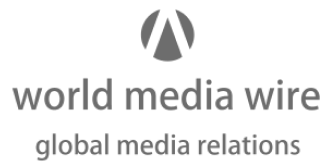Both have something to do with social media, how different can they be?
The truth is – quite.
It’s like the difference between finance and accounting. Though they both deal with the same subject, they do it in very different ways.
? Read Creating a Marketing Strategy that Works: Benefits, Steps, Tools
In this blog, we’ll go through the definitions of social media management and social media monitoring, explain which part they play in the overall marketing strategy and then move on to exploring their differences a bit deeper.
Do you need one or the other? Or maybe both? Read on to find out.
What is Social Media Monitoring?
People don’t always tag your brand when they talk about it online. Besides, they can mention your brand by its abbreviation or simply talk about one of your products. Anyways, in these situations, no social media feature can help you take a look at this mention. You depend mainly on your ability to find and note these mentions manually. And we all know that not all social media mentions have to be nice.
In fact, 35% of customers in the USA post negative comments about companies, leaving space for other negative comments to pile up if nobody addresses these. So how to track all of that?
This is where social media monitoring tools come in.

Social media monitoring refers to tracking what your customers say about your company/brand/campaign online and responding to it. It allows you to react immediately to a mention and give a personalized response. In this way, it enables you to increase customer satisfaction, save your brand reputation and stop potential crises from happening.
Isn’t social listening the same thing?
Well, almost, but not really. Social listening has the same tracking and reacting component, but it also analyzes and predicts. Social monitoring is focused on conversations on a smaller scale. In contrast, social listening takes all of these conversations and observes how they depict the overall image of your brand, how your customers feel about it, and which actionable steps you can take in your new marketing/PR/brand strategies.
In short – social media monitoring will help you spot and react to a problem. Social listening will identify why this problem happened and what you can do to avoid it in the future.

What is Social Media Management?
In contrast, social media management focuses mainly on producing and publishing content for specific social media platforms, monitoring the engagement around those posts, building a community, and analyzing the results. In this way, it is more centered around a brand’s communication strategy and how its audience responds to it. And like social media monitoring – it’s significantly easier through social media management tools. They enable you to schedule posts, get an overview of all the comments and reactions, and they most frequently provide access to valuable analytics.
Social media management involves a lot of planning and audience research. This lets you produce relevant and engaging content for your audience. In addition, it’s vital to constantly be aware of social media trends. Therefore, following social media news and influencers, trying out different content formats, and investing your time in social media marketing education is essential.
Difference Between Social Media Monitoring and Social Media Management
Are you starting to figure out the difference already? Let’s break it down in a bit more detail.
1. Different perspective
One of the biggest social media monitoring tool superpowers is that it collects mentions that didn’t tag your brand. This way, you get access to posts that wouldn’t come up in your feed that you don’t get notified about. This feature is extremely important in preserving a brand’s reputation. It enables you to react to a negative comment immediately and turn a potential social media catastrophe into a customer success story.
So, we can easily say that it takes your social media presence to a completely new level.

What is more, you can get all this information about your competitors too. Meaning – you can take a look at their mentions, how they deal with crises, how the audience responds to their campaigns etc. Therefore, you can easily perform a competitive analysis and learn more about your position in the market. In this way, you get a kind of a bird-eye-view of everything going on around your brand.
Read How to Do a Social Media Competitor Analysis Using Determ
Social media management is more of an intrinsic process. You start with your content strategy, track what your audience engages with, and eventually, how you’re performing. Basically, it is your communication strategy in action.
The other important aspect of social media management is customer service. Nowadays, 67% of consumers use social media networks to find solutions to their issues. Social media management is an integral part of a successful customer service strategy. With chat history, automated responses, and basic CRM capabilities, social media management tools provide everything you need to communicate with your customers effectively.
2. Different procedures
Monitoring vs. management? The difference between the verbs already says a lot.
The first one is mainly focused on observing what’s happening and looking at the bigger picture. It’s very strategic. The other one involves dealing with or having control over something. It’s actionable and practical. Much of this can be applied to the difference between social media monitoring and social media management.
Let’s say you own a hotel. The social media management part of your marketing efforts would be revolving around figuring out the best content to present your hotel to your target audience, posting this content on a regular basis, and analyzing how your followers react to it. It would also include research of trends and competitors. However, the best you can get on your competitors is what you can see on their social media profiles. Analytics are visible only to the owners of social media pages.
In contrast, social media monitoring tracks all conversations about your hotel online. It measures how many people actually talk about your hotel, how they feel about it, which of these online sources has a stronger influence, etc. Again, you can get this information about your competitors in the hotel industry, trends, key people, etc.
To illustrate, imagine you’re holding a presentation. Social media management would include preparing the content, presenting, and analyzing the feedback you get directly. Social media monitoring would encompass the juicy details people tell behind your back.
3. Different metrics
Since social media management and social media monitoring are focused on different aspects of marketing, the key metrics to be looked at are quite different as well.
Social media management is mainly targeted at channel growth, engagement, reach, and in the context of customer service – response time and ratings.

Social media monitoring, however, measures the number of brand mentions, sentiment, impressions, and influence score of sources and gives a wider context to every mention. In this way, it provides key information for benchmarking your progress.

For example, let’s say you work for a fashion brand and have a new spring campaign coming up. From the perspective of social media management, you will make sure to have your content calendar prepared around the campaign, you’ll have a person available on chat to answer potential questions, and you will track the reach and impressions the posts get from day to day.
Social media monitoring takes you a few steps further. It enables you to track where your campaign is mentioned online in real-time, it allows you to take a look at the conversations mentioning this campaign on different forums, how the audience feels about it, and it provides immediate reports on how you’re doing in comparison to your competitors’ campaigns. At last, you can use all of this to make strategic decisions about your future campaigns, do a competitive analysis, and further research consumer behavior.
Which SMM do You Need?
It’s very simple, actually. If you’re a one-person band, doing everything in your company yourself, then you probably won’t have time to do any of this. But, if your audience is on social media, then you might want to consider social media management, at least in its basic form – posting content every now and then and interacting with your customers.
If, however, you’re working on building a brand or you work in an agency that does that for other companies, then you need both. On the one hand social media management to build your brand image, secure your presence on social media and provide customer service and on the other hand social media monitoring for reputation management, competitor analysis, and market research.
If you’d like to learn about the full potential of social media monitoring with Determ, book a demo, we’d be happy to provide all the info you’ll need.




